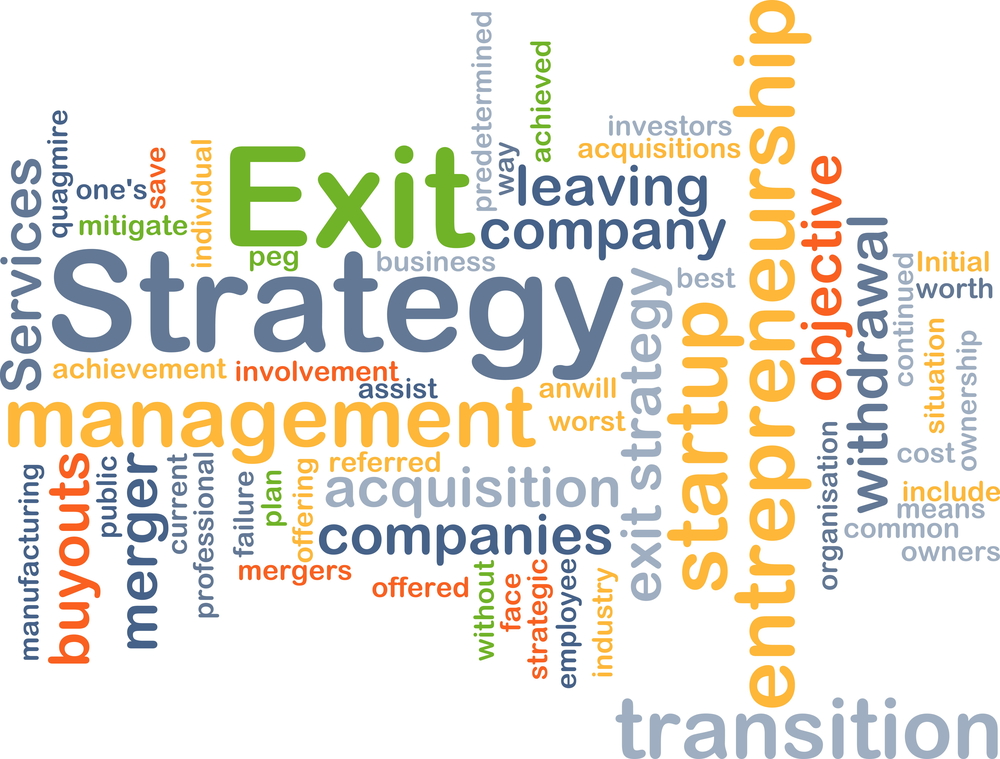This was a recent question posed to me on Quora about a startup exit. This is a simple question with a complex answer. I will hit the key scenarios, but there could be a lot of corner cases as well. There are two main forms of positive exit:
- M&A
- IPO
Startup Exit: M&A
When a company is sold, it can either be as a company sale (all assets & liabilities) or as an asset sale (sometimes with select liabilities). In the case of the former, it is cleaner for the sellers. In the case of the latter, the remaining liabilities need to be disposed by the seller, and they retain an risk associated with those liabilities.
M&A transactions can be done with cash, stock of the acquiring company, or a combination of both. Tax treatment on this should be discussed with a tax expert.
In a venture-backed startup, there is typically common stock (stock owned by the founders and stock converted from incentive stock option to employees) and preferred stock (stock that is sold to cash investors in the company, typically VCs and Angel investors). Depending upon the liquidity preference and other deal terms in a financing, the common stock may be worth something or worthless. If the company has any debt holders, they will get paid first, before any equity (stock) holders.
Startup Exit: IPO
An IPO is an Initial Public Offering. The company issues new shares that are to be sold in the public market. In the US, an IPO usually occurs on NASDAQ stock exchange or the NYSE. In some cases, existing shares can be sold in the IPO along with newly issued shares. There are no tax consequences for existing shareholders that do not sell their stock.
An initial public offering gives shareholders access to a way to sell their shares, although there is commonly a lock-up period, usually six months, where existing shareholders cannot sell their shares. Company insiders face additional restrictions based on government regulation as to when they can sell their shares. These restrictions are most restrictive for named executive officers in the company.
In order for a company to go public, preferred stockholders typically need to convert their shares to common stock. The either will need to agree to this or there can potentially be a forced conversion based in the deal terms when the company was privately financed.
I will not go into detail, but there can be different classes of publicly traded stock with different voting rights.
So What does This Mean for Existing Shareholders, Especially Company Founders and Employees in a Startup Exit?
In an M&A transaction, depending on liquidity preferences, the common stock holders may end-up with cash (which they will owe taxes on) or stock in the acquiring company. If the acquiring company is publicly traded, the employees and former employees of the company will be able to see their stock in the open market, barring any lock-ups and other restrictions. In the case of an asset sale, there may be severe limitations on getting a payout until the liabilities have been disposed.
In an IPO, after the lockup period, employees and founders with be able to sell their stock barring any company policy related of government mandated “window periods”. An IPO is more of an exit for the financial investors in the company and the rank-and-file employees than it is for the CEO and the executive team. This is also the case with members of the board of directors. Public company investors do not look at insider sales favorably and this needs to be a consideration if you are taking your company public.
One additional point: If you are an employee, founder or executive in the company, you may or may not keep your job in the event of a M&A transaction. It is important to have an employment agreement if you are a founder or CEO of a startup. Some of the most relevant posts regarding employment agreements are:
What Happens When Founders are Asked to Leave Their Startup?
Executive Employment Agreements: Understanding Tax Implications
“Change of Control” Provisions in Employment Agreements
Is “Full Acceleration” of Equity Vesting Common in Executive Employment Agreements?
Make sure you hire a competent attorney when negotiating an employment agreement.
This is Patrick Henry, CEO of QuestFusion, with The Real Deal…What Matters.
